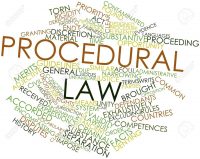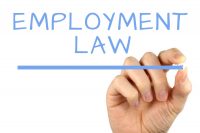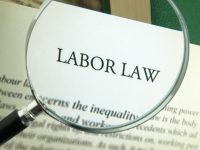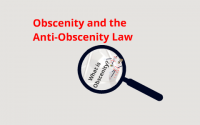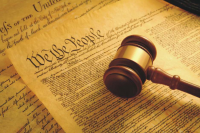Computer law encompasses all of the laws that relate to the transfer, use and storage of electronic information. Basically, it’s any law that has to do with computers and other electronic devices that store information. Computer law includes a wide range of topics including security, private property rights and even constitutional law. Contracts When you buy a computer, sign up for an account on a website or even complete a credit application online, you have to check the box that (…)
Securities / Capital Markets Law
Securities law (or Capital Markets law) is the group of laws and regulations that govern the issuance of securities. A security is a financial instrument usually designed to raise money for a business from investors in the business. Securities law dictates what a corporation has to do in order to offer their investment to the public. The laws exist in order to make sure that public investments are fair to everyone who might invest in the company. What is a (…)
Advertising Law
Advertising is everywhere. Each and every day we see countless television commercials, magazine ads, billboards, posters, and more – all meant to convince us to buy one product or another. Something many people don’t consider, however, are the laws and regulations that govern the ways in which companies may or may not legally advertise. Attorneys who work in advertising law are behind the scenes, providing guidance through law firms or in-house counsel and making sure that companies play by the (…)
Procedural Law
Procedural law is the collection of rules that govern how courts do their business. All levels and types of courts use procedural law. It controls how courts hear cases. It also dictates what a party must do in order to bring their case before the court. Where does procedural law come from? Each court has their own procedures. For example, the Federal Rules of Civil Procedure apply to federal courts. States have their own rules of civil procedure. There are also separate (…)
DEA Agent
According to the Drug Enforcement Administration (DEA.gov), the DEA is the premier drug enforcement organization in the world and the only single mission federal agency dedicated to drug law enforcement. Using unique operational and intelligence capabilities, the men and women of DEA identify, investigate, disrupt, and dismantle major drug trafficking organizations and those who facilitate them, remove drugs and violent criminals from our neighborhoods, and fight the diversion of licit drugs. For those that are interested in working for the Drug (…)
How to Become a State Trooper
A state trooper is often referred to as the State Police or as Highway Patrol Officers. A State Trooper is typically responsible for enforcing traffic laws on state highways. In addition, these officers often help law enforcement agencies that are located in more rural areas. State Trooper Requirements Each state has varying requirements for their state troopers however the majority of states require an aspiring State Trooper to attend and graduate from the state police academy. For example, according to (…)
How to Get a Law Internship as an Undergraduate
Your undergraduate years are a great time to have a legal internship. If you’ve already decided that you want to work as a legal intern, you need to figure out how to go about getting a law internship. Fortunately, there are things that you can do to find the right legal internship. Learning about what to expect in an internship and how to approach the application process can help you make your search a successful one. What are law interns? (…)
Employment Law
Employment law is the collection of laws and rules that regulate relationships between employers and employees. Employment laws say when an employer can hire employees and when the employees can work. The laws cover what an employer must pay the employee for their work. They create minimum requirements for working conditions for employees. Following employment law When an employer wants to hire someone, there’s a lot they have to know. There are minimum wage laws that require the employer to (…)
Law Clerk
A law clerk will help lawyers and judges in law firms, courts, and other types of legal settings. In order to become a law clerk there is some training required. The legal field is extremely complex and changes consistently. In order to keep up with these changes a team of legal professionals is necessary. According to the Bureau of Labor Statistics (BLS), there were 41,550 law clerks employed throughout the United States. Job Description of a Law Clerk A law (…)
Construction Law
Construction law is the combination of all of the areas of law that apply to construction work. The process of building is complex. Builders have to follow a large number of rules and regulations. There are many things that they need to know and do before they ever pour the first bit of cement or clear the first tree. People in the construction industry have to work with private entities and government representatives in order to conduct business. They must (…)
Labor Law
Labor laws are the laws that govern the relationships between employers and employees when employees unionize. Labor laws regulate whether employees can join together to negotiate employment terms collectively. When laws allow collective bargaining, they determine the obligations and rights of the employer and employees. Where do labor laws come from? Lawmakers pass labor laws with the goal of making the employer-employee relationship fair to everyone involved. Proponents believe that workers have an unfair bargaining position compared to the resources and (…)
Business Organization Law
Business organization law is the body of law that relates to creating, managing and dissolving businesses. There are several ways to organize a business. Each type of business structure has its own set of rules to follow. Each type of business structure also comes with its own advantages and drawbacks. A business lawyer helps their client choose the right business structure, complete paperwork filing, manage ongoing organizational issues and even helps dissolve the business when it’s appropriate. Helping clients go into business (…)
Property Law
Property law is the area of law that governs what people own. It’s the area of law that says who can own land and personal items, how they can use them and with what conditions. Property law applies to both real property and personal property. Ownership and use of property is an area of law that impacts everyone in society. Property law is also an important part of estate law, family law and municipal law. Property law is the area of law that (…)
Obscenity Law
Obscenity law is the law that regulates what images, speech and other expressions individuals can lawfully communicate. Obscenity law concerns itself with banning or suppressing speech that violates standards of good taste and decency. The area of law balances legitimate communication in a free society with the purposes of public censorship. The practice of obscenity law involves prosecuting and defending cases that challenge and interpret obscenity laws. Why do obscenity laws exist? Obscenity laws protect a sense of morality in (…)
Sports Law
Sports law is the collection of the many different types of law that impact the sports industry. Sports law might involve issues that relate to professional or Olympic athletes. It also relates to laws that govern youth and amateur sports. There are many different types of law that impact the sports industry like contract law, personal injury law, trademark, criminal law, and athletic administration. Sports lawyers live and work throughout the United States. What is sports law? Even though professional sports agents might (…)
Secret Service Agent
Since its inception in 1865, the Secret Service has been involved in protecting the integrity of the United States financial systems. The Secret Service has jurisdiction in the United States for investigations involving the counterfeiting of U.S. and foreign obligations and securities. This authority has expanded to include the investigation of financial institution fraud, access device fraud, computer crimes, fraudulent government and commercial securities, fictitious financial instruments, telecommunications fraud, false identification and identity theft. The secret service has been mandated (…)
Oil and Gas Law
Oil and gas law is the area of law that governs oil and gas production. Oil and gas laws determine who owns the right to mine for oil and gas. It determines what conditions miners have to follow when they harvest oil and gas. The field of oil and gas law is a mix of common law, statutory law and administrative regulations that govern the mining and harvesting of these natural resources in the United States. What are oil and gas (…)
Types of Law Degrees
According to the Bureau of Labor Statistics (BLS), becoming a lawyer requires a minimum of two degrees over the course of 7 years of full-time study – 4 years for an undergraduate degree, followed by a 3 year law degree earned from a law school accredited by the ABA. If you are considering law school, generally there are three different types of law degrees a person can earn in the U.S.A. These degrees include a Juris Doctor, a Master of Laws, and a (…)
Maritime Law
Maritime law is the collection of laws and agreements that govern behavior and activities on the seas. The area of law governs how people interact and do business on the waters of the world. Also called admiralty law, maritime law primarily governs activities on international waters. However, there are also laws that apply to the waters in and near each country. Generally, each country applies their own laws to inland waters like lakes and rivers. When most Americans board a (…)
Consumer Law
Consumer law is the group of laws that protect the public at large from unfair and predatory business practices. Consumer laws protect the public from unscrupulous ways of doing business. The area of law requires compliance from the corporations that consumer laws regulate. What does consumer law regulate? The practice of consumer law concerns itself with protecting individuals from unfair trade, inaccurate information and unethical ways of doing business. Say the phrase consumer law and most people probably think of (…)




